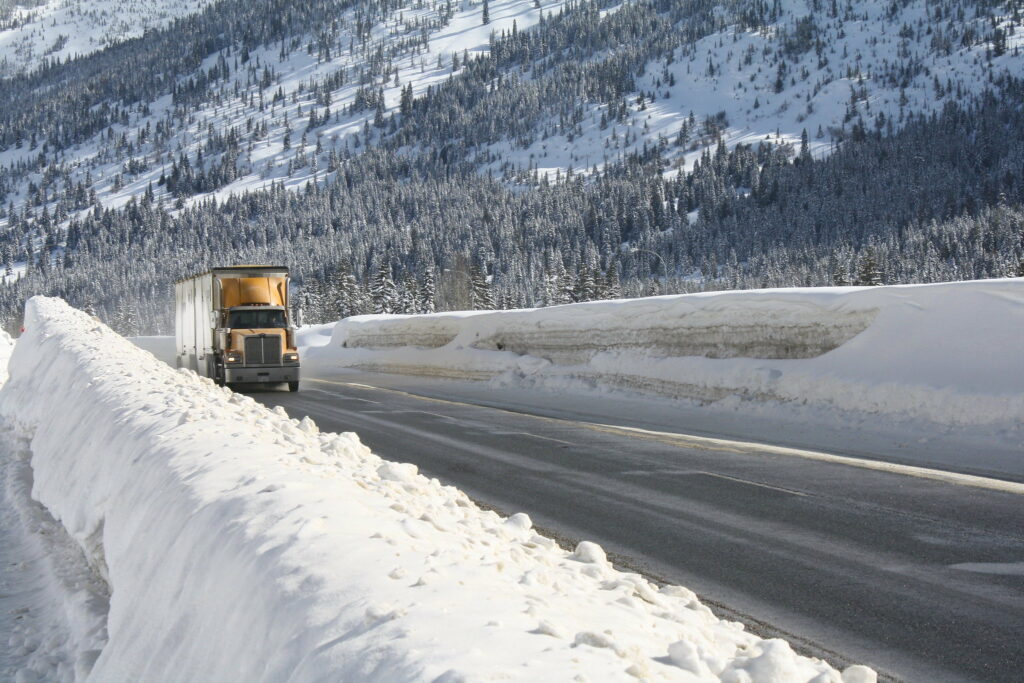B.C. implements MELT program
B.C. on Oct. 18 implemented its ICBC-approved Class 1 mandatory entry-level training (MELT) course, the B.C. Trucking Association (BCTA) said in a news release. The successful completion of this course is required for individuals applying for a B.C. Class 1 driver’s licence.
Designed to exceed the minimum requirements set by the National Safety Code Standard for entry-level training of Class 1 drivers, the MELT program requires 140 total hours and includes more practical behind-the-wheel driving hours, in-yard hours, and theoretical instructional hours.

To ensure commercial drivers are prepared for B.C.’s highway network and challenging climates, course curriculum was added that focuses on operating practices for the province’s mountainous terrain and diverse driving conditions.
“It is a monumental day for BCTA,” said Dave Earle, BCTA president and CEO. “We have advocated for a higher and consistent standard of training for the commercial transportation industry for many years. We were pleased to work closely with the provincial government and other stakeholders to develop a system that raises the bar on safety and helps meet the needs of employers and drivers.”
The implementation of higher training standards that produce competent and skilled commercial drivers will be an essential step in addressing the growing driver shortage that plagues the industry.
“MELT is going to level the playing field,” added Earle. “All new Class 1 drivers in B.C. will now have to complete the same level of training, helping to ensure consistency and competency of skills. This standardized training will help to attract and retain qualified drivers in our province, and we look forward to further discussions with the B.C. government regarding funding to support training and the growing needs of our industry.”
Have your say
This is a moderated forum. Comments will no longer be published unless they are accompanied by a first and last name and a verifiable email address. (Today's Trucking will not publish or share the email address.) Profane language and content deemed to be libelous, racist, or threatening in nature will not be published under any circumstances.
This is great news!
Just curious though… while BC is addressing the adverse conditions of driving in mountainous terrain/diverse conditions unique to this territory, how will the trucking industry handle those transportation companies that haul into Bc?
It would be beneficial for Alberta companies that haul into BC to also have additional training relating to the driving conditions in this region.
Are there any plans under the MELT program in Alberta to address this?
I think Dave Earle is dreaming. The generations today are not trucking because they want too. They drive because
it is a job, it pays the bills. If they had a better option, they would be gone and in most cases it is because of money.
What job now requires an investment of $15,000 before you get started.
Training and experience is important but there is a limit.
Doesn’t seem to be working in Ontario. I sent letters with pictures to both my MP and the head of the MTO Ontario. Got no reply from MTO and my MP asked if he could use my pics.
I retired from trucking and work in a place where I occasionally unload trucks.
One day had one come in with 4 very large steel fabrications on the deck and the one on the end of the trailer was not secured because his ONE STRAP cut through and fell off. Next one up had one strap over the top and two on the front had NO securement at all!!!!
Next one had no idea how to undo his straps. I had to do it for him.
Today, yet another that could not understand English and despite me sitting there in my wheel loader with the forks up, I had to get out and physically direct him to pull in front of me.
This is what trucking has become and why I got out.
MELT is a low end Driver Training Program that created the worst truck safety record in Ontario in 30 years.
The only thing MELT has done is make truck driver training schools wealthy.